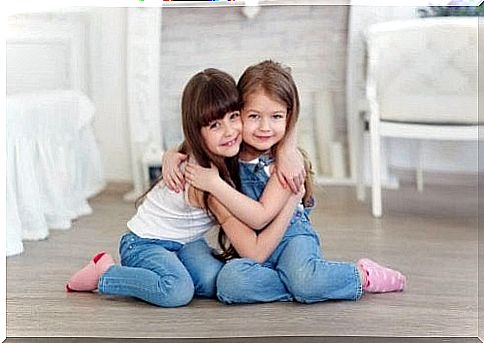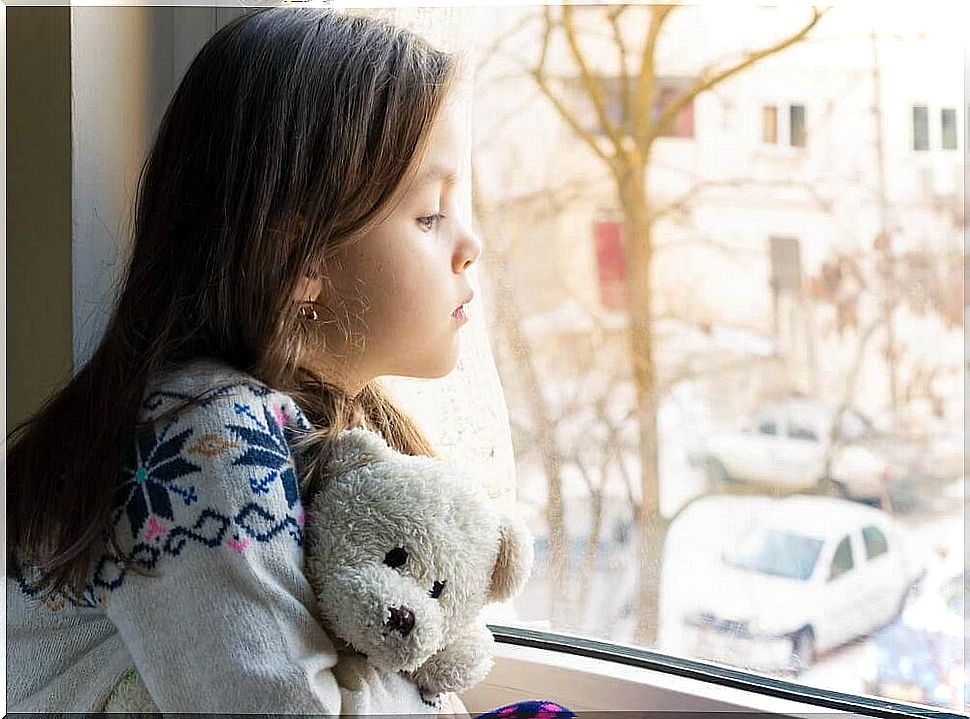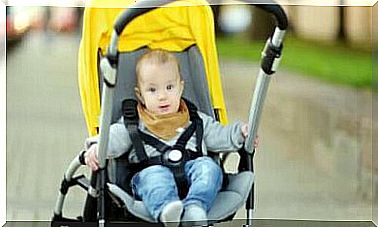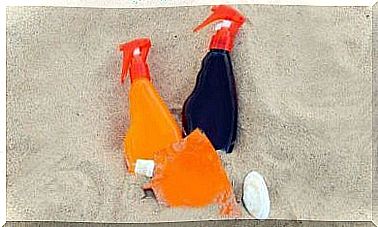Help Your Child See Who A Real Friend Is

Parents are children’s first friends. We share their games, games and experiences, but it is natural that as they grow they start to have new relationships. They meet friends at school, in the neighborhood or among their own family’s children. How can you help them understand who a true friend is during this emotional experience that means growing up?
This task starts from the age of 4 or 5, when our children begin to develop one of the most important social skills: learning to have real friends and keeping them. Soon afterward, they must learn to recognize when a friendship is becoming a focus of anguish or concern.
Teaching them, from an early age, the value of friendship is one of the main tasks we have as parents. Especially if we want our children’s friends to have the potential to bring them happiness.
Help your child understand who his real friend is
If you are Mom or Dad, it may seem obvious that friendship should be a positive experience. However, not all children are like that. And if they don’t understand the difference, it means something isn’t working. Children should learn from an early age who a real friend is and that friendships are a source of expressing love.
How to identify a real friend?

We cannot choose our children’s friendships. Especially during adolescence, which is when friends replace any interest and become the most important in their lives. What we can do is guide them so that they know how to build valuable relationships, in which respect and sincerity prevail.
You can gently and subtly tell your child to review which of his friends have some signs so he can determine for himself who is a real friend and who isn’t.
A good friend…
- It celebrates your successes and supports you in bad times. Screams with joy when you get the score you expected or when you score a goal.
- He’s also on your side when he sees you worried and encourages you to overcome the problem.
- Help with everything you need.
- Treat yourself well. He’s kind, he never makes fun of you or your opinions.
- It’s honest. Tell the truth about what you think and don’t change your mind about yourself when you least expect it.
- He tries to stay away from conflicts and doesn’t make fun of people.
- It’s loyal and constant. Even when they argue, you know you won’t lose your friendship.
- Have fun and laugh together.
- It doesn’t matter to you that you have other friends. Friends who don’t admit other people tend to be toxic.
- Respect your opinion and let you express yourself.
- Even if it doesn’t agree with you, it values and respects your beliefs.
- It doesn’t force you to do what you don’t want. If you don’t want to go to a party, or consume alcohol or drugs, respect your decision without labeling.
Our child can be sure that if he has at least one friend who meets half of these characteristics, he is certainly facing a relationship of true friendship.
How to help your child overcome toxic friendships

Every afternoon, when she returns from the institute, Marina locks herself in her room. Her mother knows it’s a way of isolating herself to deal with the treatment she receives from one of her best friends, who one day doesn’t leave her and the next completely ignores her and separates her from the group. Marina doesn’t know how to react to a friend who loves and hates her at the same time. It is normal that cases like this occur.
As in every human relationship, communication is fundamental. To guide your child through a toxic friendship experience, communication will be the golden tool. First, listen to what he has to say and be a patient listener. Use empathy to try to get a feel for what he is experiencing. Expressing your emotions is already a form of release.
Show him how valuable he is
You can help your child nurture self-esteem. One of the ways is that he engages in other activities in which he excels and that allows him to participate in other groups of friends. You can also encourage him to focus on friendship with other boys or girls in his class, among whom he can find real friends.
But, most of all, we must help our children to overcome the challenge of facing a harmful friendship. We must guide them to understand and learn from the relationships that begin. This will help them to be in a stable position to overcome their teenage disorders.
Be the real friend of others
American poet and philosopher Ralph W. Emerson wrote that “the only way to have friends is to be a friend.” It’s a good concept for our kids to understand who a real friend is.
When we treat others well, when we show the qualities of a true friend and do the right thing, good people will be attracted to those virtues. Therefore, your way of being is very likely to attract a good friend.
Children who receive their parents’ attention and guidance to build good friendships have more opportunities not only to identify who a real friend is, but also to achieve “fireproof” relationships filled with satisfying experiences.









